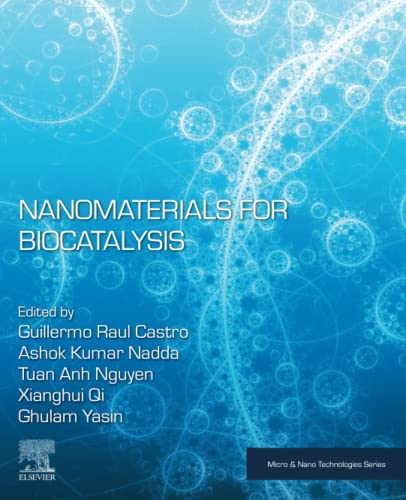

Most ebook files are in PDF format, so you can easily read them using various software such as Foxit Reader or directly on the Google Chrome browser.
Some ebook files are released by publishers in other formats such as .awz, .mobi, .epub, .fb2, etc. You may need to install specific software to read these formats on mobile/PC, such as Calibre.
Please read the tutorial at this link: https://ebookbell.com/faq
We offer FREE conversion to the popular formats you request; however, this may take some time. Therefore, right after payment, please email us, and we will try to provide the service as quickly as possible.
For some exceptional file formats or broken links (if any), please refrain from opening any disputes. Instead, email us first, and we will try to assist within a maximum of 6 hours.
EbookBell Team

4.0
86 reviewsNanomaterials for Biocatalysisexplains the fundamental design concepts and emerging applications of nanoscale biocatalysts, such as bioconversions, bioelectronics, biosensors, biocomputing and therapeutic applications. Nano-biocatalysts refers to the incorporation of enzymes into nanomaterials. These enzyme-enhanced nanocarriers have many advantages, including low mass transfer limitation, high enzyme capacity, better stabilization, and the formation of single-enzyme nanoparticles. Smart nanocontainers have been developed for the smart release of their embedded active substances. These smart releases can be obtained by using smart coatings as their outer nanoshells. In addition, these nanocontainers could protect the enzymes from chemical or metabolic alterations on their delivering pathways towards the target. This is an important reference source for materials scientists and chemical engineers who want to know more about how nanomaterials are being used for biocatalysis applications.